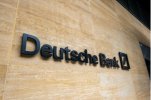- Date
- 13 April 2022
Deutsche Share Collapse
Deutsche Share Collapse
By Jake Rickman |
What do you need to know this week?
Deutsche Bank’s shares have fallen 10% following selloffs of more than €1.75bn worth of its shares, or more than 5% of its entire share capital.
The American asset manager Capital Group was the biggest single seller, having disposed of nearly $1.3bn in shares. This comes off the back of Cerberus Group — an American private funds group — unwinding its position in Germany’s largest lending institution.
Deutsche Bank has struggled in recent years to keep pace with the global investment banking competition.
Why is this important for your interviews?
Along with lawyers, global banks are the other set of principal advisers in large corporate finance transactions. If lawyers advise the senior management of large companies on how best to allocate risk, manage their regulatory requirements, and focus their strategy during complex deals, investment bankers are supposed to ensure that the value of their clients' capital is being appropriately leveraged.
In simple terms, investment bankers try to match their clients with the most lucrative financial opportunities. If they are advising a company looking to raise money, they will try and maximise the price their client can get for their shares (or the cheapest cost of borrowing). If their client is an investment professional, they will try and source the best deal on the market.
If you are interested in corporate finance, knowing who the big players are in the investment banking space is as important as knowing the top law firms. You might therefore find it helpful to get a sense of Deutsche’s history and why they are something of a “black sheep” among the other so-called “Bulge Brackets”, which is a loosely defined coterie of elite investment banks thought largely to consist of Goldman Sachs, JP Morgan, Morgan Stanley, Citi, Bank of America, UBS and Deutsche.
DB (as other bankers call it) may arguably be the most scandal-prone bank global investment bank, according to some commentators. It has long advised oligarchs and other politically exposed individuals, including Donald Trump, on how to shield their money from taxes, regulations, and sanctions. While much of its activity straddles the line between common practice and moral dubiousness, some of its activity has turned out to be downright illegal. For example, it holds the record for paying the biggest settlement arising from allegations of market manipulation to date, at $2.5bn.
DB’s legacy of relatively disappointing performance over much of the last 10 years can be partly explained by these scandals, as well as risky financial gambits. In recent months, it had sought to reposition itself as a straight shooter. That is why this round of selloffs will hit DB quite hard.
How is this topic relevant to law firms?
That is not to say that DB is not still respected as an eminent investment bank. Their M&A advisory work is some of the best in Europe, which means that if you are interested in corporate law, you will likely work alongside (or opposite) DB throughout your career.
Image Credit: William Barton / Shutterstock.com
